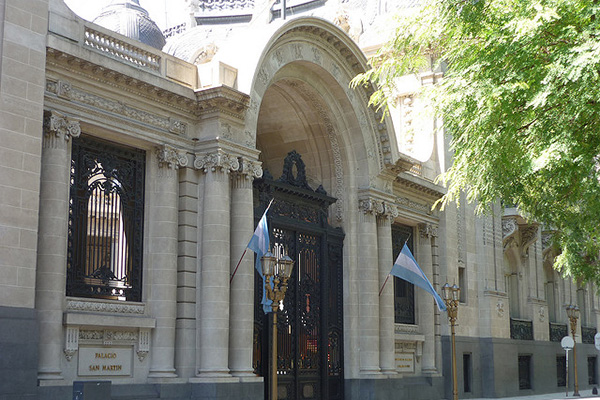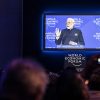
The exercise has just begun and will culminate in the November summit in Buenos Aires. It is important for Argentina, for its President, Mauricio Macri, for Latin America, and for the G20 itself. ‘The G20 is an opportunity for Argentina and for the region’, remarked the head of the cabinet, Marcos Peña. Even if there is continuity with the preceding Chinese and German G20 summits, there are different priorities: the future of work in the digital age, sustainable infrastructure and food security, with the possible addition of the fight against corruption. They are issues that concern Argentina especially, and virtually all the others, if not all. Argentina wants to listen to everyone –including Trump’s US– and it is engaged in Sherpa-level coordination with the other two countries in the region, Brazil and Mexico, both members of a group that represents two thirds of the world’s population and an even greater proportion of global GDP. Mexico did not manage this at the 2012 Los Cabos summit, toeing as it did the economic line then prevailing in the US. Argentina aims to pay more heed to the diversity –in terms of both problems and solutions– of the national and regional situations faced by the G20.
The G20 agenda has steadily broadened over the years. Argentina aims to rein it in and, while the ministerial meetings may produce more technical conclusions, hopes the summit will restrict itself to producing a three-page communiqué in a language that can be fathomed by the person in the street, eschewing technicalities. The G20 is not set up for geopolitical coordination or for addressing the problem of Venezuela, for example. There is too much diversity, hence the merit of these efforts to rein in its agenda. And to achieve a short and comprehensible communiqué a good deal of hard work will be needed. Macri also wants to align the G7 and G20 agendas.
The future of work and of education in the digital world of tomorrow is a key issue that concerns everyone. It certainly concerns Argentina, which is preparing the ground assiduously; this was evident at the launch, under its presidency, of the think-tank network known as T20, now being led by the Argentine think tanks CARI and CIPPEC. According to the Robotlution report from Intal-IDB, automation could affect 1.1 billion people in the world. The report claims that in Argentina it may affect 71% of people educated to just primary or secondary school level, and ‘only’ 40% of university graduates. Education, in other words, matters. Education may not be the solution to everything, however, unless job creation policies are also pursued. Naturally, Argentina does not expect to have all the answers to the problem, but it does want to place it squarely on the G20 agenda and ensure a subsequent continuity, because it is one of the key issues of our age.
Argentina is also greatly concerned with infrastructure. Like Brazil it is an agricultural powerhouse, but its transport systems are weak. Internet connectivity faces the challenge or rolling out fibre optic networks as well as the transition to the promising (and for the internet of things, crucial) 5G mobile system. Infrastructure embraces energy and social communications too. In general terms, the G20 is an opportunity for domestic reforms in Argentina in light of the international agenda. In the run-up to its G20 presidency, Argentina is placing more emphasis on the idea of equitable and sustainable ‘development’ than it is on mere growth.
What this equates to is a view from the South and from Latin America that also concerns the North. It may, however, be a North that is more divided, between Europe –important but somewhat alone– and the US, which has decided to plough its own furrow (heedless of what it leaves in its wake). Lest it be forgotten, Trump’s US is part of the G20 and deals will have to be struck with him too. The G20, as the economist and staunch Trump critic Jeffrey Sachs reminded us, also reflects the tensions that exist between the US and China and Russia.
It looks set to be interesting, partly for its implications for Macri’s regional leadership, an idea to be treated with care, although perhaps he will fill the vacuum created elsewhere. He is resisting the temptation to set himself up as the leader of the region, starting with Mercosur, preferring instead that such a status flows from the successes he chalks up for his country, for the region, from the management of the G20 and other achievements. Argentina is aware that internal governability shapes the ability to influence global governance, as Sergio Bitar, President of the Foundation for Democracy, put it. And as Macri said at the World Economic Forum in Davos ‘if we continue to be isolated, we only aggravate our problems of poverty’. The G20 is a chance to escape the isolation that bedevilled Argentina in the Kirchner era. The Treasury Minister, Nicolás Dujovne, describes presiding over the G20 as ‘one of the greatest diplomatic milestones in the history of the country’. Whatever the outcome, there can be little doubt that Argentina has resumed its place at the table.
The question is whether the same can be said of the G20, which proved very useful in coordinating the management of the crisis in 2008-09, but much less so, in spite of its well-meaning and long-winded communiqués, in what has transpired since. Ten years after the crisis, the current synchronised growth throughout the world –albeit unequally distributed within its societies– and the shared challenges of the future may present a new opportunity. What matters, as much as the content at the G20, is the process of generating a common culture regarding what is possible. The ideal outcome for this Argentine G20, however, would be success in terms of process and success in terms of results. This time it is Argentina that is in a position to ask of its fellow members (amending a phrase made famous by the philosopher Ortega y Gasset): G20, get down to work!


